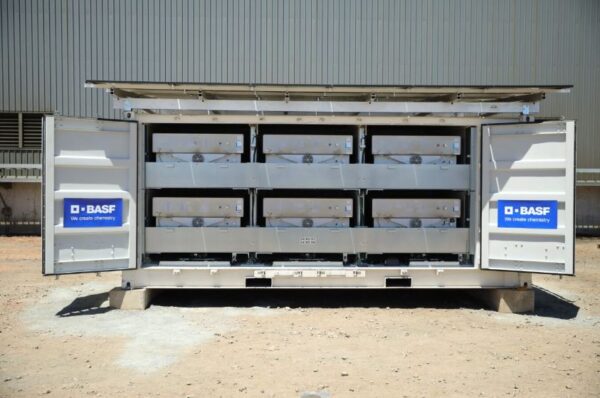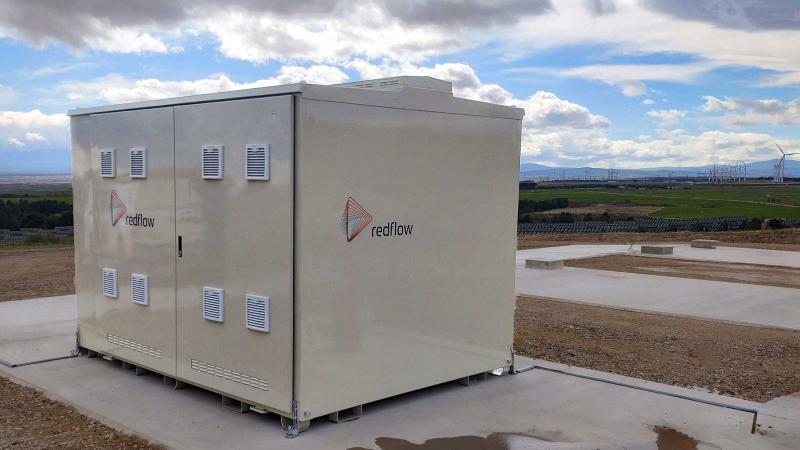Horizon Power will install and trial a 100 kW / 400 kWh zinc bromine flow battery supplied by Australian manufacturer Redflow and a 250 kW / 1,450 kWh sodium sulphur battery to be provided by Germany chemical company BASF, on Western Australian (WA) microgrids at Nullagine and Carnarvon, respectively.
Horizon Chief Executive Officer Stephanie Unwin said the trials, backed by both the federal and WA governments, will provide the state-owned energy utility with valuable operational experience and understanding of the technologies and how they work in regions with high temperatures, which could support future deployment in the regions.
“Horizon Power was an early adopter in battery energy storage, and for the past 15 years we have been exploring how energy storage can best be used to promote increased uptake of renewable energy across regional WA,” she said.
“Our latest trials will continue our exploration of long-duration energy storage (LDES) technologies which are suitable for withstanding the extreme temperatures of our regions, providing valuable insights which will support with future deployment of the batteries in our regions.”
Redflow’s 100 kW zinc bromine flow battery will be put to the test at Nullagine in the Pilbara region, where summer temperatures regularly soar above 40 degrees Celsius. Redflow said it will partner with a WA engineering, procurement and construction service provider for the build and commissioning of the battery.
BASF’s 250 kW sodium sulphur battery, to be deployed at Carnarvon in the Gascoyne region, will be the first of its kind in Australia to connect to a regulated network. Allset Energy will be responsible for the installation of the battery at Canarvon.
Both battery energy storage systems are expected to be deployed by early 2025.

Image: BASF
Horizon said the trial will test each battery’s ability to shift rooftop solar electricity produced in the middle of the day to evening hours as well as demonstrate hybrid operability alongside lithium-ion batteries for optimal network service delivery.
Unwin said Horizon already has a number of lithium-ion batteries installed on networks it operates but has identified a need for longer-duration energy storage technologies to be included in its portfolio.
“Last year, we became the first Australian energy utility to purchase a vanadium redox flow battery (VRFB), for a long-duration energy storage pilot in Kununurra,” she said. “The battery, which arrived in Perth earlier this year, will be deployed to site in coming months.”
Unwin said the LDES trials will provide the Horizon project team with key learnings around how the new technologies can be effectively integrated into its network and test their temperature resilience in regions with extreme weather conditions.
The Australian Renewable Energy Agency (ARENA), which has announced $2.85 million in funding under the Regional Microgrids Program for the $5.7 million trial, said the ability of zinc bromine flow batteries and sodium sulphur batteries to withstand higher ambient temperatures over long periods, while maintaining reliable power with a lower degradation, is particularly important in remote community microgrids and is a distinct advantage over current lithium-ion technology.
ARENA Chief Executive Officer Darren Miller said there is a need to find new sources of medium and long-duration dispatchable renewable energy storage to ensure that people who live in remote areas without grid-connected electricity aren’t left behind in the energy transition.
“Renewable dispatchable technologies such as solar PV and wind combined with lithium-ion battery energy storage systems, and pumped hydro are well established, however, there are characteristics of each that may not be suited to all locations, particularly in locations with extreme heat,” he said.
“Horizon Power’s project, if proven successful, could see these innovative battery technologies become an important part of our energy mix in regional communities.”
If the trial is successful, it is expected the project will help accelerate the rollout of battery energy storage solutions across Horizon Power’s 34 service areas.
This content is protected by copyright and may not be reused. If you want to cooperate with us and would like to reuse some of our content, please contact: editors@pv-magazine.com.









By submitting this form you agree to pv magazine using your data for the purposes of publishing your comment.
Your personal data will only be disclosed or otherwise transmitted to third parties for the purposes of spam filtering or if this is necessary for technical maintenance of the website. Any other transfer to third parties will not take place unless this is justified on the basis of applicable data protection regulations or if pv magazine is legally obliged to do so.
You may revoke this consent at any time with effect for the future, in which case your personal data will be deleted immediately. Otherwise, your data will be deleted if pv magazine has processed your request or the purpose of data storage is fulfilled.
Further information on data privacy can be found in our Data Protection Policy.